|
This is Peach, a beautiful adolescent Great Dane whose youthful energy recently led to some trouble.
Peach's mom, along with her kids, adore Peach. They were deeply concerned when she came inside with a bleeding foot. Having recently changed jobs, Peach's mom lacked the savings for a vet visit and tried her best to treat the injury at home. When the bleeding persisted and Peach seemed to be in pain, she applied with Fur Kids Foundation for assistance with Peach’s unexpected veterinary care. A dog’s feet are essential for their daily activities, keeping them fit and happy. If your dog cuts their foot, it’s important to examine the pad closely for any foreign objects like glass or thorns, as well as debris such as grass or gravel. Loosely embedded debris can be gently removed with clean tweezers, followed by cleaning the wound with warm soapy water and rinsing with clear water. While minor cuts can often be managed at home, deeper cuts require veterinary care. A vet can determine the necessary treatment. Watch for signs of infection, which may include:
Peach received a thorough cleaning of her foot and was sent home with antibiotics. With crate rest and reduced activity, she is expected to make a full recovery. We need your help to ensure we can keep supporting pets like Peach. Could you spare $10 to help us get more fur kids back on their paws? Donations are tax-deductible and make a huge difference. Or, if you're looking for another way to help, consider joining our pack as a volunteer. Fur Kids Foundation is entirely volunteer-run, and we need passionate folks to help us fundraise, process applications, and spread the word about our mission in the Northeastern corner of Wyoming. Let's give our furry friends the love and care they deserve; visit www.furkidsfoundation.org to learn more.
1 Comment
Meet Blue, a spirited 1-year-old mix of Australian Shepherd, Corgi, and Rat Terrier. Blue and his mom recently moved from Texas to Wyoming for a fresh start. While Blue's mom is juggling odd jobs and searching for full-time employment, Blue has been her steadfast companion, offering emotional support whenever she needs it.
One day, Blue's adventurous spirit led him on an unexpected sightseeing expedition in their new city. Unfortunately, he returned home with a broken leg, leaving his mom distraught and worried about how to afford his care. Fortunately, she applied with Fur Kids Foundation for assistance with Blue’s emergency veterinary expenses. After an overnight stay at the clinic for monitoring, the veterinarian and Blue's mom decided that amputating his leg was the best course of action. Though the decision was tough and emotional, leg amputation can be the best solution for many dogs, leading to successful outcomes. "Tripod" dogs, as they are affectionately called, can live long, healthy lives with minimal specialized care after recovery. Blue underwent surgery and is expected to make a full recovery. Thanks to the support from Fur Kids Foundation, Blue is on his way to living a happy, healthy life on three legs. We need your help to ensure we can keep supporting pets like Blue. Could you spare $10 to help us get more fur kids back on their paws? Donations are tax-deductible and make a huge difference. Or, if you're looking for another way to help, consider joining our pack as a volunteer. Fur Kids Foundation is entirely volunteer-run, and we need passionate folks to help us fundraise, process applications, and spread the word about our mission in the Northeastern corner of Wyoming. Let's give our furry friends the love and care they deserve; visit www.furkidsfoundation.org to learn more.  Meet Luna, the two-year-old Great Dane with a heart as big as her paws! Recently, Luna’s mom has been going through a rough patch, dealing with a separation from her spouse and starting a new job. One day, Luna started showing signs of being sick—she seemed exhausted, had a runny nose and eyes, was coughing, and refused to eat or drink. Worried sick, Luna's mom rushed her to the vet. Knowing that this unexpected veterinary expense was going to be hard on her, she applied for help from Fur Kids Foundation. At the vet, they discovered Luna had a fever of over 103 degrees and diagnosed her with pneumonia. This condition, much like in humans, involves inflammation in the lungs’ air sacs, which can fill with fluid and hinder oxygen absorption making it hard for a pooch to breathe. The symptoms to watch for in dogs include:
We need your help to ensure we can keep supporting pets like Luna. Could you spare $10 to help us get more fur kids back on their paws? Donations are tax-deductible and make a huge difference. Or, if you're looking for another way to help, consider joining our pack as a volunteer. Fur Kids Foundation is entirely volunteer-run, and we need passionate folks to help us fundraise, process applications, and spread the word about our mission in the Northeastern corner of Wyoming. Let's give our furry friends the love and care they deserve; visit www.furkidsfoundation.org to learn more. Meet Koa, a 12-week-old Redbone Coonhound. Koa's parents, who recently moved into a pet-friendly home, fell in love with his shelter picture and quickly welcomed him into their family. Not long after adopting Koa, a family emergency required them to travel across the state and stay in a hotel, bringing Koa along.
Soon after the trip, Koa became very ill with diarrhea and vomiting, and was diagnosed with Parvo. Koa's mom is a full-time student, and his dad is the main provider for the family. Koa's illness was devastating for them; they applied to Fur Kids Foundation for help with this emergency veterinary care. For those who don’t know, canine parvovirus is a highly contagious virus that attacks white blood cells and the gastrointestinal tract of puppies and dogs; it can also damage the heart muscle in puppies. According to the American Veterinary Medical Association (AVMA), it is spread by direct dog-to-dog contact and contact with contaminated stool (picking up dog poop is very important), environments or people. The virus can contaminate kennel surfaces, food and water bowls, collars and leashes, and the hands and clothing of people who handle infected dogs. It’s resistant to heat, cold, humidity, and drying, and can survive in the environment for long periods of time. The virus is readily transmitted from place to place on the hair or feet of dogs or via contaminated cages, shoes, or other objects. Even trace amounts of feces from an infected dog may harbor the virus and infect other dogs that come into the infected environment. AVMA recommends that all dogs receive a canine parvovirus vaccine. Thankfully Koa had received his first two sets of Parvo vaccinations, so Fur Kids Foundation was able to offer assistance. Koa's family isn't sure if he contracted Parvo from their new yard or during their travels. Just so you are aware: Puppies younger than 16 weeks should receive their first dose between 6 and 8 weeks old, followed by two more doses 2–4 weeks apart. Puppies should receive a dose at or after 16 weeks of age, even if they received earlier doses. After the initial series, a booster dose is recommended within one year, and then every three years after that. It's important to remember the "paws off the ground" rule while your puppy is still completing their Parvo vaccinations. Even with initial vaccinations, puppies are not fully immune to Parvo, so it's best to carry them in unfamiliar areas. Koa's parents followed the vet's advice, bleaching their backyard and adhering to all guidelines. After a three-night stay at the vet to receive fluids and medication, Koa was able to come home and is expected to make a full recovery. Will you donate $10 today to help us continue to help fur kids get back on their paws? Donations are tax deductible. Or you can join our pack to help get fur kids back on their paws by becoming a volunteer. If you didn’t know, Fur Kids Foundation is 100% run by dedicated volunteers who give their time to help the Foundation raise money with events, take applications, and spread the word about the good work the Foundation does in Campbell County, Wyoming. Meet Tiny, a 3-year-old Tabby. Tiny suddenly became very ill–he was refusing to eat or drink, and what little he had in his belly he wasn’t able to keep down. They knew Tiny needed to be seen by the vet as soon as possible.
At the vet Tiny went through a number of tests; he had gastrointestinal inflammation and constipation. Gastrointestinal inflammation in cats can be caused by a number of conditions, including:
Signs that your feline could be going through one of these conditions include:
Tiny's mother is a stay-at-home mom, while his father is the sole breadwinner. Though they diligently budget for Tiny and their pets, ensuring they're spayed/neutered and up-to-date on vaccinations, they hadn't anticipated Tiny’s sudden illness. Tiny is very loved by his pawrents, so they applied for assistance with this veterinary emergency with Fur Kids Foundation; we were able to help due to the amazing support we receive from our supporters. Tiny received an enema and some medication to help with the pain and inflammation. We are happy to report that Tiny is on his way to feeling better. Will you donate $10 today to help us continue to help fur kids get back on their paws? Donations are tax deductible. Or you can join our pack to help get fur kids back on their paws by becoming a volunteer. If you didn’t know, Fur Kids Foundation is 100% run by dedicated volunteers who give their time to help the Foundation raise money with events, take applications, and spread the word about the good work the Foundation does in Campbell County, Wyoming. This beauty is Honey, a 14-year-old Chihuahua. Recently, Honey's mom changed jobs, leading to a dip in income. Amidst adjusting budgets, Honey developed an eye infection. Her mom watched the infection, which didn’t improve, so her mom took her to the vet.
Symptoms Of Eye Infections In Dogs What follows is a broad list of the some common signs that can occur in dogs with eye infections. If you notice any of these symptoms in your dog, make an appointment with your vet. This way your dog can be properly diagnosed and treated for the condition that is causing their discomfort:
Honey's mom knew she couldn't cover the vet bill, so she applied with Fur Kids Foundation for help, which we were able to provide thanks to our amazing supporters. During the vet visit, it was clear that Honey was dealing with several eye issues and diseases. After discussing all the treatment plans, it was agreed that eye removal was the best for Honey. Remarkably, Honey is adapting admirably to her altered sight. Eye infections in your pup can be a scary thing to deal with, however, it is best for veterinarians to diagnose and help you treat these conditions. If your pup is facing a medical emergency with their eyes, get them into the vet as soon as possible. Will you donate $10 today to help us continue to help fur kids get back on their paws? Donations are tax deductible. Or you can join our pack to help get fur kids back on their paws by becoming a volunteer. If you didn’t know, Fur Kids Foundation is 100% run by dedicated volunteers who give their time to help the Foundation raise money with events, take applications, and spread the word about the good work the Foundation does in Campbell County, Wyoming. Meet Frankie, a beloved 2-year-old Boxer Labradoodle mix who's not just a furry friend but also a devoted big sister to her human sibling. Described as her mom's "ride or die," Frankie's presence is cherished in their household.
Tragedy struck when Frankie slipped out of the house and was hit by a car, shattering her leg and breaking her mom's heart. Rushed to the vet, it was determined that the only option for Frankie was to amputate the severely injured leg. One of the scariest things pet owners face is an emergency such as a broken leg. While we can’t always plan for emergencies, we can be prepared by recognizing and understanding the signs and symptoms of a broken leg according to PetMD:
No matter how the leg was broken and what type of fracture it is, your pet should be seen as soon as possible by a veterinarian to minimize complications. For Frankie's single mom, who recently welcomed a baby into the family, the unexpected medical expenses posed a significant challenge on top of existing hospital bills. Nevertheless, determined to give Frankie the care she needs, they applied with Fur Kids Foundation for help with the bills. After undergoing surgery to remove her leg, Frankie is now on the road to becoming a resilient tri-paw pup, with hopes for a full recovery, thanks to the unwavering support of her devoted family and to you, our faithful donors. No matter what is happening with your fur kid, at any stage of life, Fur Kids Foundation encourages you to call your veterinarian sooner rather than later. Will you donate $10 today to help us continue to help fur kids get back on their paws? Donations are tax deductible. Or you can join our pack to help get fur kids back on their paws by becoming a volunteer. If you didn’t know, Fur Kids Foundation is 100% run by dedicated volunteers who give their time to help the Foundation raise money with events, take applications, and spread the word about the good work the Foundation does in Campbell County, Wyoming. Meet Lexi, a cherished 6-year-old Chiweenie who means the world to her dad. When she started favoring one of her back legs, her dad grew deeply concerned.
Lexi's dad, living on a limited Disability income, fretted over his beloved pup's well-being. Seeking help, he applied with Fur Kids Foundation. At the veterinary clinic, they diagnosed Lexi with a luxating patella—a condition where the kneecap dislocates from its normal position. According to VCA, pet parents may notice a skip in their dog’s step or see their dog run on three legs; then, suddenly, be back on all four legs as if nothing happened. There are four grades of patellar luxation, and a higher grade means that the condition is more severe and that the dog may develop long-term problems. Surgery should be performed if a dog has recurrent or persistent lameness, or if other knee injuries occur secondary to the luxating patella. Dogs with a grade I condition typically don’t need surgery; however, those with grades II-IV often do. Lexi's case, fortunately, falls on the milder side. With anti-inflammatories and restricted activity, she is expected to have minimal issues in the future. Her dad will monitor her and do what it takes to help his girl continue to feel better. No matter what is happening with your fur kid, at any stage of life, Fur Kids Foundation encourages you to call your veterinarian sooner rather than later. Will you donate $10 today to help us continue to help fur kids get back on their paws? Donations are tax deductible. Or you can join our pack to help get fur kids back on their paws by becoming a volunteer. If you didn’t know, Fur Kids Foundation is 100% run by dedicated volunteers who give their time to help the Foundation raise money with events, take applications, and spread the word about the good work the Foundation does in Campbell County, Wyoming. This is Sassy, a delightful 6-year-old Dachshund. Sassy's mom relies on a limited income from SSI. Recently, Sassy was not wanting to eat, was throwing up, and had diarrhea. She knew her pup was very sick.
When she brought Sassy to the vet she was told that her fur kid had Pyometra, a serious and potentially life-threatening infection of the uterus that happens to unaltered female animals. Sassy's mom was told she would need to have surgery in order to survive. According to information from WebMD, symptoms of Pyometra usually show four to eight weeks after a heat cycle and include increased thirst, nausea, vaginal discharge, bloating, panting, fatigue, appetite changes, increased urination, and even sudden collapse. These symptoms may also hint at other underlying medical issues, emphasizing the importance of prompt veterinary attention. Fur Kids Foundation often see’s animals that aren't spayed or neutered because of finances. While surgery for Pyometra can cost around $2,000, preventative spaying typically costs less than $200. There are organizations, such as Litehouse Humane Society, that help cover the cost of spays and neuters. In our eyes, there is never a good reason to not spay (or neuter) your pet. Fur Kids Foundation is happy to report that Sassy was able to have surgery and is expected to make a full recovery. Sassy's story serves as a reminder of the importance of regular veterinary check-ups and responsible pet ownership. No matter what is happening with your fur kid, at any stage of life, Fur Kids Foundation encourages you to call your veterinarian sooner rather than later. Will you donate $10 today to help us continue to help fur kids get back on their paws? Donations are tax deductible. Or you can join our pack to help get fur kids back on their paws by becoming a volunteer. If you didn’t know, Fur Kids Foundation is 100% run by dedicated volunteers who give their time to help the Foundation raise money with events, take applications, and spread the word about the good work the Foundation does in Campbell County, Wyoming. This is Meeko, a 4-month-old Corgi. Meeko's dad is currently the only income in the home, and switched jobs recently. The transition caused them to fall behind on bills.
Meeko, a typical puppy, needs to be watched all the time so he doesn't get into anything. Unfortunately, when his mom wasn't watching, Meeko got a whole dark chocolate Delta 8 bar and ate it. Delta 8 is legal in the state of Wyoming. Meeko almost immediately became comatose and incoherent. His parents rushed him to the vet, afraid they would lose their puppy. This expense was more than they could afford, so they applied to Fur Kids Foundation for help with this unexpected veterinary bill. Delta 8 is different from CBD products. According to the FDA, Delta-8 THC products should be kept out of the reach of children and pets. Delta 8 edibles include gummies and other candies, mints, chocolates and chocolate bars, beverages, potato chips, and baked goods such as brownies and cookies. Unfortunately, many of these sweet or savory products are also yummy to our dogs, and dogs are more likely to ingest an entire package of any edibles they can reach because they taste delicious. According to the Whole Dog Journal, ingestion of small to moderate amounts of these products may cause the following signs in dogs: listlessness, incoordination when walking, falling over when standing, dilated pupils, slow heart rate, dribbling urine, and an exaggerated response to light, touch, and sound. Dogs who have ingested large amounts may have slow breathing, low blood pressure, and may exhibit seizures or become comatose. If your dog accidentally consumes delta 8, THC, or any product containing it, it is important to seek immediate veterinary assistance for guidance on how to proceed and ensure your pet's well-being. Meeko had to stay a few days at the clinic while he slept off the Delta 8, receive fluids, and have his temperature–which kept dropping–monitored around the clock. After a few days, Meeko was becoming more coherent and was able to go home. Where his parents will put things little puppies should not have, in a harder to reach place. If you use delta 8 products, please store them in a locked drawer or cabinet to keep them out of reach of your pets. Will you donate $10 today to help us continue to help fur kids get back on their paws? Donations are tax deductible. Or you can join our pack to help get fur kids back on their paws by becoming a volunteer. If you didn’t know, Fur Kids Foundation is 100% run by dedicated volunteers who give their time to help the Foundation raise money with events, take applications, and spread the word about the good work the Foundation does in Campbell County, Wyoming. |
Fur Kids FoundationWelcome to our blog! Get inspired by these amazing furry tales of recovery and hope! All because someone like YOU cared. Archives
June 2024
|
© 2011-20223 I P.O. Box 7074, Gillette, WY 82717 I 307.363.1131 I [email protected]




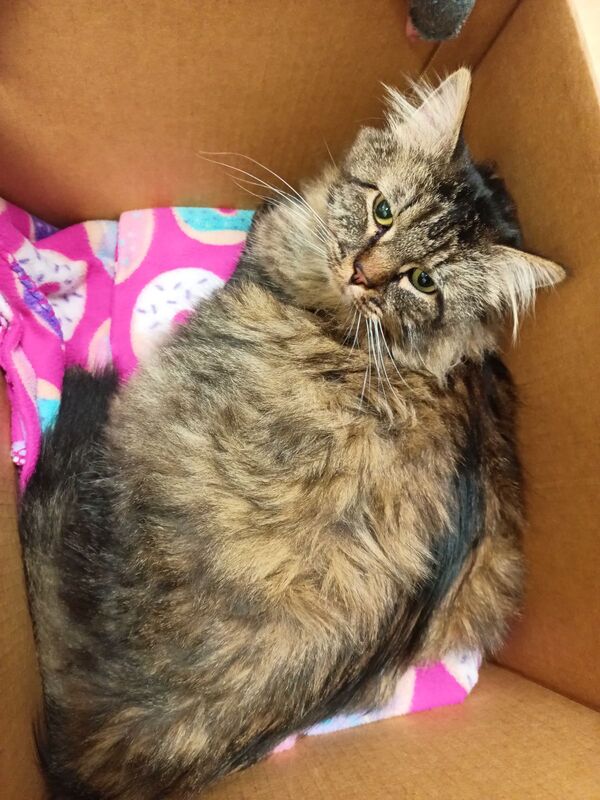

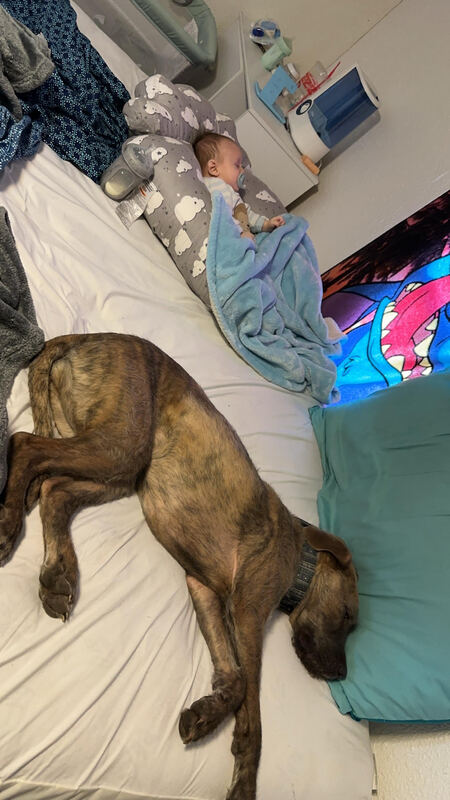
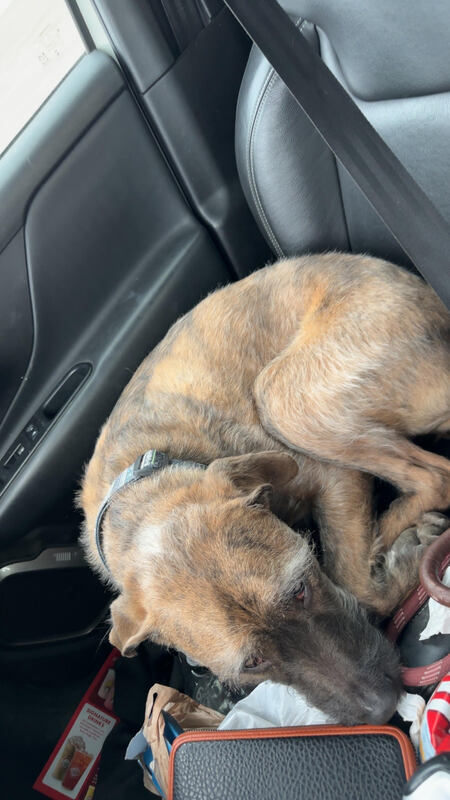
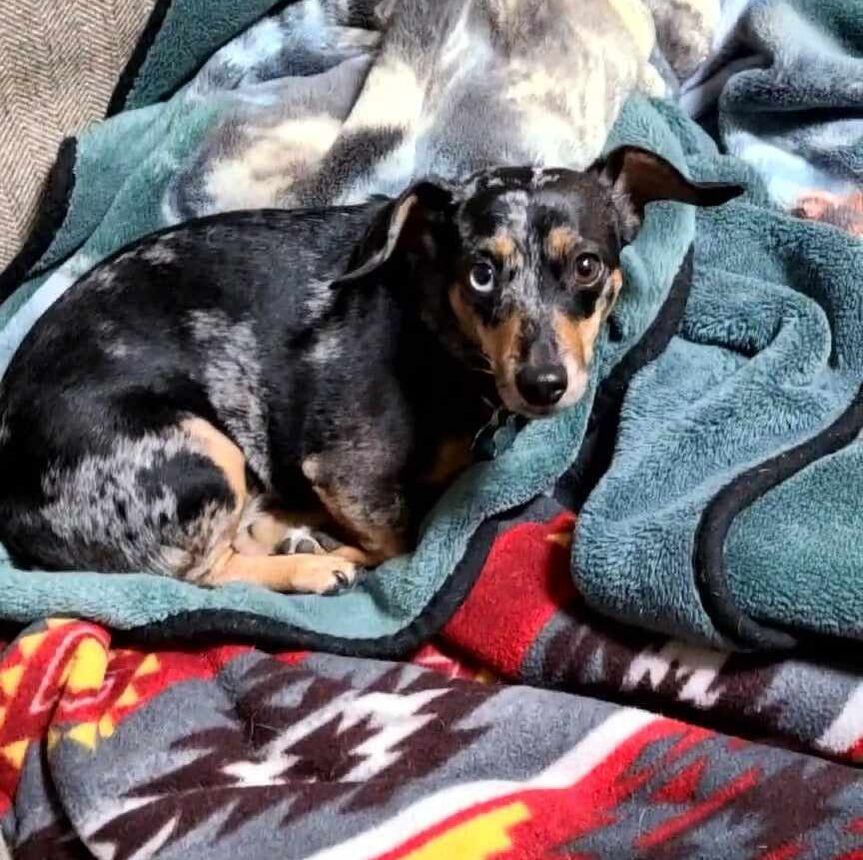

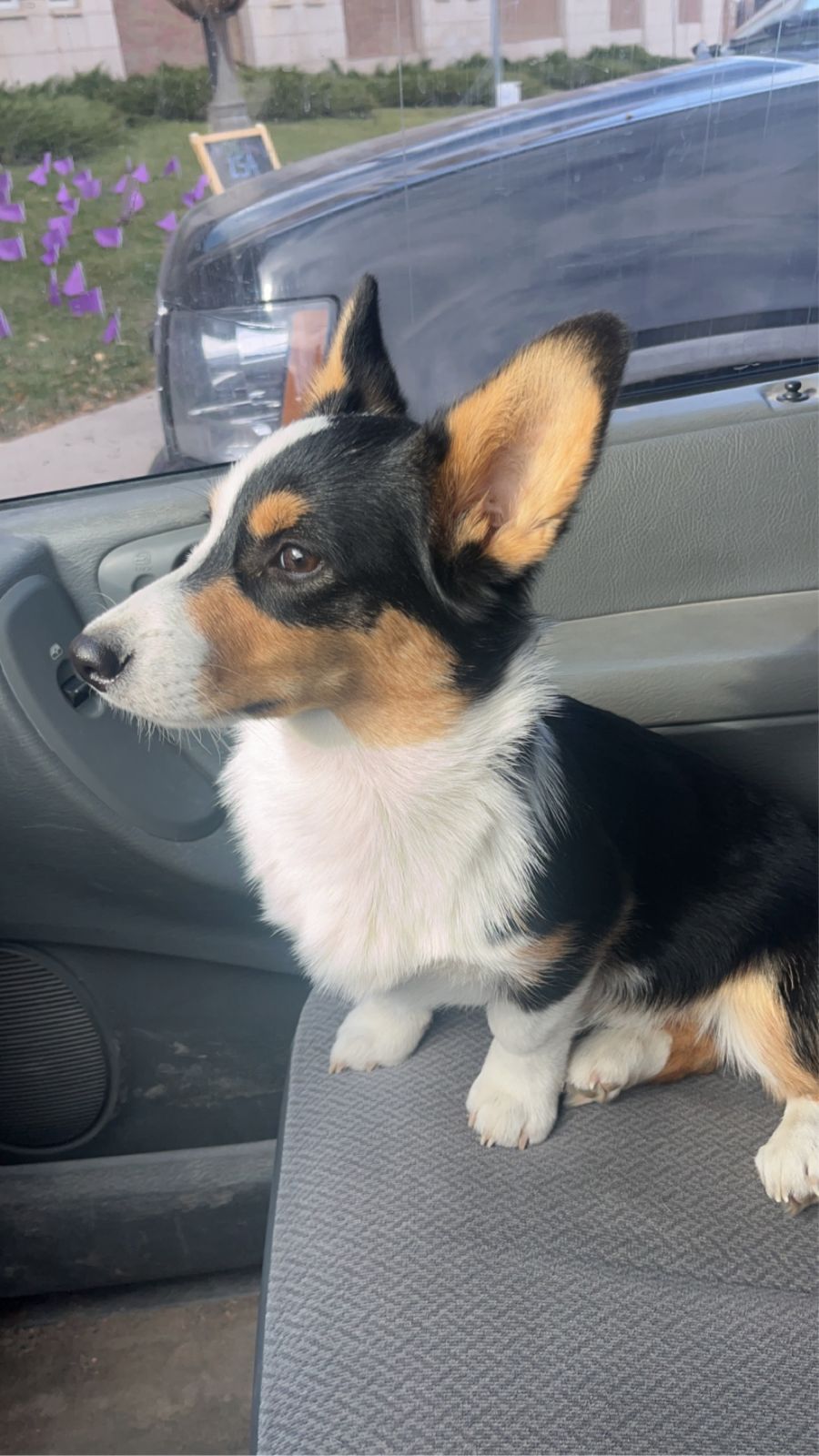
 RSS Feed
RSS Feed


